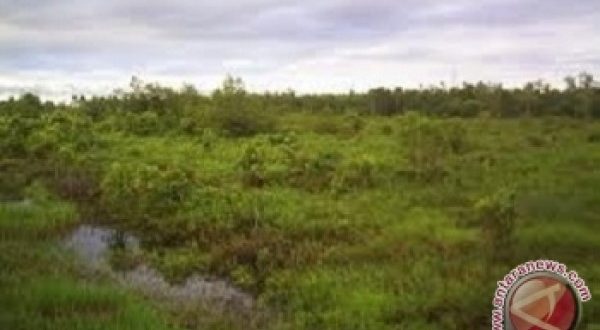PEKANBARUPOS.COM (PPC),PEKANBARU – The permit for 1 million hectares of oil palm plantations all over Indonesia would be terminated on the government regulation No. 57 of 2016 on protection and management of of peat land ecosystem.
The peat land regulation No. 57 of 2016 requires change in the function of one million hectares of oil palm plantations all over the country, Plantation Director General Bambang said on the sidelines of a Plantation Development Consultation and Coordinating Meeting here on Wednesday.
Bambang said the owners of the one million hectares of plantations are most likely holders of the Business Land Use Title (HGU).
He said currently based on data at the Agriculture Ministry, the country has 11.9 million hectares of oil palm plantations before the peat land regulation was in force.
“From the total of 11.9 million hectares, one million hectares would have to be abandoned by the owners as their HGU permit would not be renewed,” he told reporters.
He said the regulation is aimed at protecting and maintaining the hydrological function of the peat land, but there is a risk in the conversion of the land.
“Who is to watch the process of restoration of the function? The risk is the possibility of the land getting damaged after being abandoned and not cultivated as is being practiced now with no one to watch over it,” he said.
Meanwhile, the Riau regional administration expressed concern with the regulation saying the regulation is potential to have negative impact on its income. A number of large oil palm plantations use peat lands. The regulation could result in a substantial decline in plantation production in the province.
“The provincial administration could not reject the policy, but it would seek to create synergy that the impact would not be too serious to large plantation companies as well to the regional income. The plantation sector, the oil palm plantation companies in particular have contributed up to 59 percent or around Rp86 trillion to the economy of Riau,” a senior official of the regional administration said.
Earlier, the Riau branch of the Indonesian Federation of Palm Oil Companies (Gapki) asked the government to review the government regulation No. 57 of 2016 on Protection of Peat Land Ecosystem, and four regulation of the Environment and Forestry Minister.
“The regulation could not be put into force as the impact would be bad on palm oil business,” Riau Gapki chairman Saut Sihombing said.
Riau has 3 million hectares of oil palm plantations and 45 percent of the plantations are owned by smallholders, 41 percent by large companies and the rest are operated by plasma farmers.
Crude palm oil (CPO) is one of the country s largest export outside oil and gas. In 2016, the country s exports of palm oil and derivatives were valued at US$18.6 billion and palm oil companies contributed 2.23 percent to the country s tax revenues. The sector provide jobs for 5.3 million Indonesian or a livelihood for 21.2 million people including their dependents. (adv)
